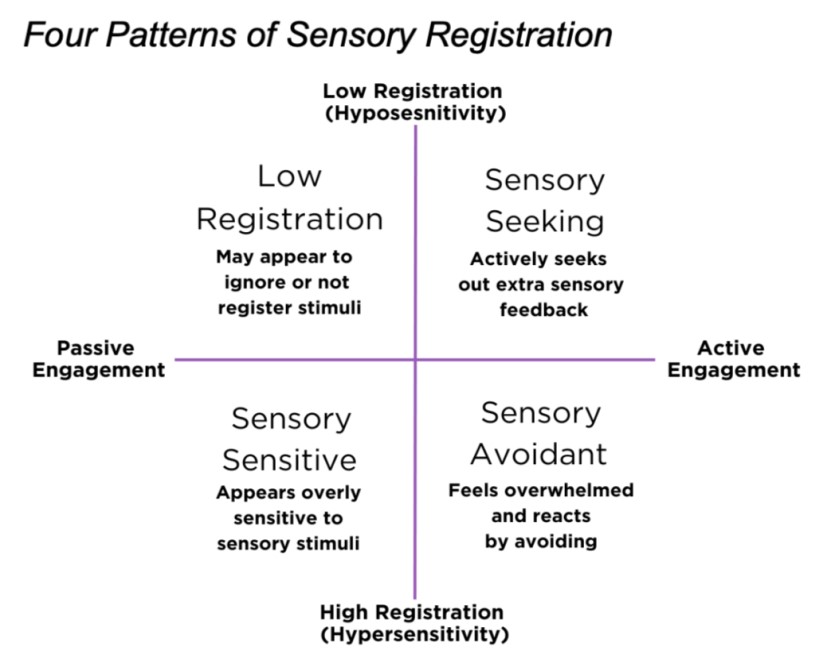Sensory Seeking or Sensory Sensitive: Understanding Sensory Integration In Kids
8th October 2024

Research reveals that between 5-16% of the students in the United States experience sensory processing issues.
While some of these kids just have problems with their sensory processing, these problems are frequently linked to additional disorders. Children with sensory processing disorders find it difficult to handle that barrage of information. Although the fundamental five senses were taught to us in primary school, three less well-known systems affect everyone. Kids don't all have the same reactions to situations and stimuli. However, their answers usually fit into one of two groups. If you are wondering what is sensory integration in kids, here is everything you need to know.
What Are Sensory Processing Issues?
The term "sensory processing" (sometimes used to refer to "sensory integration") describes our capacity to identify, comprehend, and react to information that is sensed. Children with sensory processing disorders may not all have the same difficulties, but they all struggle to integrate sensory data and formulate appropriate responses.

Sensory experiences that most children find delightful can be uncomfortable or even painful for children with sensory processing disorders, making them avoid stimulation of this nature. However, because of a lack of intensity, some children's brains fail to detect cues that others perceive rapidly, making them look unresponsive or even unpleasant.
Before you move to the topic, can we ask you a quick question? Do you follow us on Social Media? If not, then you’re missing out on a lot of informative content. We regularly share upgraded educational content, tips, feedback, and more. Check us out by clicking the profiles here -
What Do Sensory Processing Issues Look Like?
Symptoms of problems with sensory processing frequently include unusual responses to experiences, like:
- Annoyance or discomfort with labels, the feel of clothing, the loudness or pitch of music, or the patterns of light or vision.
- Under-reactivity to sensory input, such as a high pain threshold or an inability to react when their name is called.
- The high degree of activity, attempting to provide pressure by giving strong hugs or intentionally running into objects and people.
- Minimal activity or staying away from activities that require mobility.
- Inappropriate physical contact, such as biting, licking, or caressing someone.
- Disliking being dirty or resisting grooming.
- Eating with preference or having finicky tastes.
Children who struggle with sensory processing disorders may also have trouble with their motor abilities and awareness of their bodies. Problems with sensory processing can also impact social connections, adaptability, and self-control.
How To Spot When Your Students Need Extra Support?
Subtly or overtly, your child may exhibit certain behaviors that indicate they require assistance with their sensory processing, such as exhibiting elevated anxiety in similar circumstances, experiencing repeated physical mishaps, avoiding specific areas, refusing to calm down until they receive a firm hug, etc.
Here are a few ways you can help them:
- Steer clear of or reduce recognized triggers.
- Assemble coping mechanisms to reduce stress and prepare the youngster for trigger-filled circumstances.
- Manage a few ambient elements (noise level, strong lighting, etc.)
- To meet the demands of either too or underly sensitive senses, set up sensory breaks.
- Create a sensory toolkit when traveling.
How Can Teachers Help?
When a child's sensory processing problems appear to be highly disruptive, or when there are certain sensations or triggers that parents are unable to control, educators who have pursued ADHD courses online or offline can offer:
- Capable of determining and developing treatment strategies.
- To identify systems that are too or underly responsive, do particular testing.
- Make sure your child has the activities and accommodations for sensory input they require to follow sensory "diets."
- Solve problems in a way that your parents might not know how.
- Provide Sensory Integration treatment, if thought fit.
Bottom Line
While sensory processing difficulties might be unsettling initially, there are hope and resources available for parents and educators who have pursued Autism courses online to support each kid in beginning to flourish and enjoy their environment.
We believe education should be accessible for everyone. That’s why we don’t charge for our blogs. Find the right course that will help you in your career with us, contact us at - 91-6292150868. You can mail us at act@asiancollegeofteachers.com
Written By : Victoria Lewis

